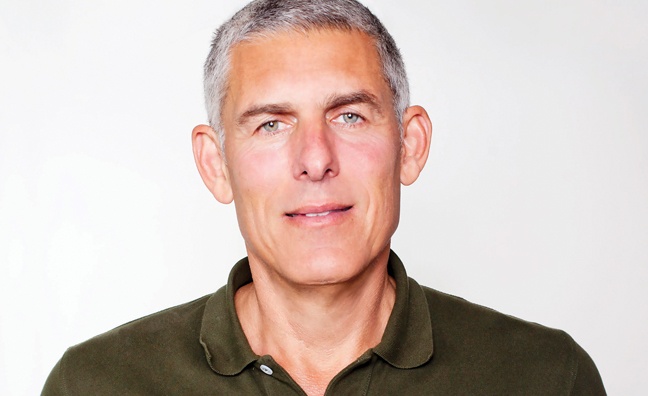This year – and this August specifically – marks the 50th anniversary of hip-hop.
To mark the occasion, the latest issue of Music Week features well over 100 artists, top executives, broadcasters, managers, producers and more to pick and salute one album that impacted their lives and pushed hip-hop culture forward. But that’s not all.
Inside, we also catch up with YouTube & Google’s global head of music Lyor Cohen to get him to reflect on the early days of hip-hop. And there was a lot to look back upon, given his career started in the 1980s at Rush Productions working with the likes of Run-DMC and LL Cool J, before later becoming president of Def Jam where he would help steer the careers of Jay-Z, DMX, Foxy Brown, Redman and more. He was, however, keen to stress one thing about the success of his early years...
“I wouldn’t frame it that I ‘achieved’, I was just a lucky bastard that was in the right place at the right time,” he said. “Def Jam’s legacy is all on the shoulders of LL, Public Enemy, the Beastie Boys, Slick Rick and all the magnificent artists. Big shout out to Rick Rubin, too. I feel a great sense of gratitude for the great fortune that I had to show up in New York in 1983 and be a part of this art form. Aside from the fact that I could put a roof over my family’s head and send them to college, I also met some really remarkable people along the way. Gratitude is underrated. Recognising how lucky one is, is really healthy. ”
Def Jam’s legacy is all on the shoulders of LL Cool J, Public Enemy, the Beastie Boys, Slick Rick and all the magnificent artists
Lyor Cohen
While Cohen enjoyed immense success at Def Jam, he is quick to open up about the times when it was hard. Sometimes, as president, he had to be blunt with artists. And sometimes he had to be even more honest with himself...
“One of the great honest moments is when I was honest with myself about how many shitty artists I was signing, and that I just needed to catch my breath and believe in myself,” he told Music Week. “You can’t be honest with everybody else and not be honest with yourself. And that’s when Reggie Noble [aka Redman] walked in the door…”
The signing of Redman marked a crucial turning point for the label's – and Cohen's – fortunes. Another key signing was DMX. Indeed, after the star released his classic debut It’s Dark And Hell Is Hot, Cohen offered him a million dollar bonus if he could get Def Jam another album in 30 days. The result was two No.1 albums in 12 months...
“I would say I knew that there was a potential risk of a collision between Earl Simmons and DMX,” of the decision to tempt DMX into a recording a second record quickly. “And I thought we, as rap fans, would also benefit from additional DMX records. So yeah, I think that was a good move. I would have loved for the world to appreciate what a beautiful person Earl Simmons was. I wish life treated him more kind. But yeah, that was a good move.”
Cohen also gave insight into why he believes Jay-Z – yet another legendary Def Jam artist – managed to get to the remarkable level he occupies today.
“I think it was a perfect storm of a really, really rmarkably talented person,” said Cohen. “A lot of people get hits and a lot of doors open up but it’s oftentimes about the doors that you don’t go in, the things that you say no to. Jay is not in a hurry. So, aside from being insanely talented, he also didn’t feel like he was in a hurry to make a bunch of wrong decisions. Part of his story is about making the right decisions for himself.”
Cohen also took time to reflect on how hip-hop not only changed the sound of music, but also the music business itself.
“I would say the critical contribution that Def Jam and hip-hop in general made to the music industry is entrepreneurialism,” he offered. “People talking about owning their masters and stuff like that – I think that is the early planting of the entrepreneurial spirit of rappers and hip-hop. It’s not good enough just to shyly cruise into your parking spot – you turn up the volume, rev up your engine and let everybody know that you’re a part of this community and taking care of business. So the fact that there is ownership of clothing and liquor companies and people are getting paid hundreds of millions of dollars is, I think, [the result of] all the lessons that they’ve learned. The possibilities are very real, if you’re about your business and you’re talented.”
Subscribers can read Cohen’s 2021 Music Week Interview here.
Photo: Noa Griffel












